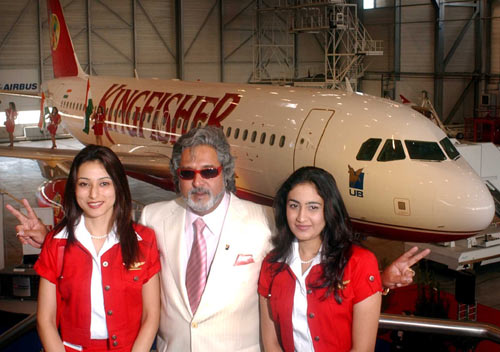
Hyderabad, October 12: A city court on Friday issued a non-bailable warrant against business tycoon Vijay Mallya and five others in a cheque bounce case.
The 13th metropolitan sessions court issued the warrant against crisis-hit Kingfisher airlines in a case filed by GMR Hyderabad International Airport Ltd (GHIAL), which manages the Rajiv Gandhi International Airport here.
The case was filed in August by GHIAL after four cheques of Rs 10.3 crore issued by Kingfisher towards user charges bounced.
The court issued the warrant after Mallaya failed to appear despite summons issued to him. The liquor baron reportedly sought exemption from personal appearance as he was abroad.
The respondents in the case include Kingfisher, its chairman Mallya and CEO Sanjay Agarwal.
Kingfisher had issued cheques to GHIAL towards airport user charges which include parking, landing and navigation charges.
The crisis-hit airlines faces similar cases in Mumbai and Delhi after the airport operators moved the court over dishonoured cheques.





Comments
Add new comment